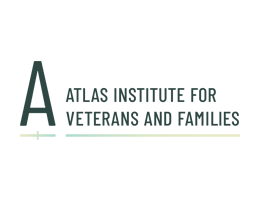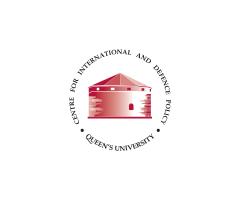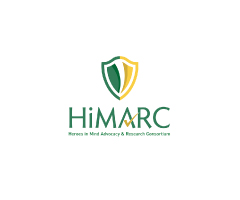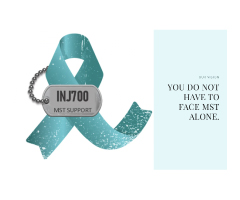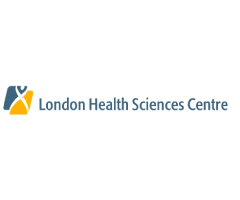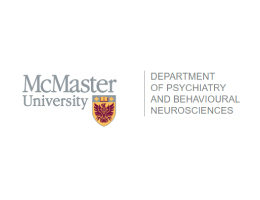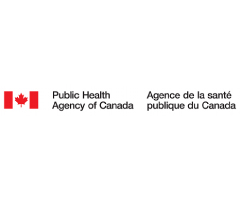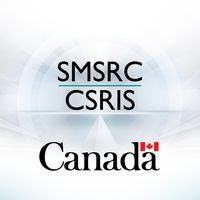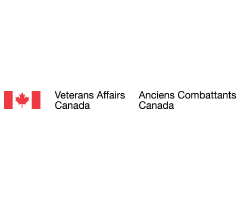The Evolving Discussion on Military Sexual Misconduct and Military Sexual Trauma: An Introduction
The introductory webinar of the Virtual Symposium Series looks at the contexts, institutions and systems at play in MST. Military sexual misconduct affects many areas of life in different ways. These impacts emerge from not only the incidents themselves, but also ineffective institutional responses that damage trust and violate key values. We can only prevent what we know.
This session brings together service providers, researchers, leaders and individuals with lived experience working to improve knowledge, understanding, supports and treatments for Military Sexual Trauma in Canada.
This event has ended. More information and resources are available below.
Content warning
This webinar may include content on difficult topics including suicide. The content may be hard to listen to and may bring up a range of emotions. We encourage you to care for your safety and well-being.
The Evolving Discussion on Military Sexual Misconduct and Military Sexual Trauma: An Introduction
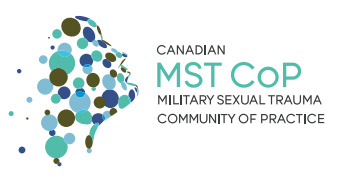
Related Resources
Speakers & Presentations
Read more about the speakers and view or download their presentations from this webinar. Note: Not all speakers have downloadable presentations available.
Dr. Alexandra Heber has over 35 years’ experience as a nurse and as a psychiatrist. After a decade working with HIV+ clients and leading an Assertive Community Treatment (ACT) Team in Toronto, she enrolled in the Canadian Forces in 2006 and deployed to Afghanistan in 2009-10. In 2016, she became inaugural Chief of Psychiatry for Veterans Affairs Canada. She also worked with the Public Health Agency of Canada to help develop the Federal Framework on PTSD. Currently, she co-chairs the Canadian Military Sexual Trauma Community of Practice.
Dr. Heber has written two online courses on PTSD treatment, using a Trauma-Informed Care approach. She has presented and published nationally and internationally on mental health in military, Veteran, and first-responder populations. Her current research interests include: mental health impacts of COVID-19, military sexual misconduct and trauma, and the effects of minority stress on women, LGBTQ2 Veterans and other marginalized groups.
Dr. Heber is an Assistant Professor of Psychiatry at the University of Ottawa.
Dr. Andrea Brown graduated with a PhD in Applied Social Psychology from the University of Guelph in 2007. Since 2015, she has been conducting research and evaluation in mental health and addictions. Prior to this, she worked as a human factors consultant conducting applied research for the Department of National Defence. She has extensive experience conducting qualitative research with public safety personnel and military/Veteran populations.
Dr. Brown is currently working on a Masters in Psychotherapy at McMaster University.
Catherine Gagné graduated with a Master’s degree in Social Work from the University of Ottawa in 2007. She subsequently graduated with a Certificate in Health and Social Service Management from the University of Montreal in 2014. She has worked as a Senior Counsellor with the Sexual Misconduct Response Centre since 2017. Prior to this, she worked as a Crisis Intake Worker at the Vanier Community Service Centre and as a Victim Services Worker at the Victim/Witness Assistance Program at the Ottawa courthouse.
She has extensive experience working in crisis intervention as well as with victims of crime and, more specifically, with victims of sexual assault.
Christina Hutchins is the senior director of the Office of Women and LGBTQ2 Veterans at Veterans Affairs Canada. She took on the role in July 2019. A Veteran with 21 years of Regular Force service as an Army logistics officer, Christina joined the Public Service as an Executive in 2009 and has been with VAC since 2013.
She holds a Master’s degree in Business Administration and a post-graduate certificate in Peace and Conflict Studies with a focus on Women Peace and Security.
Dr. Lori Buchart joined the Canadian Forces Reserve in 1982. Her Reserve Force Service entailed both part- and full-time engagements in Lethbridge, Calgary, Penhold, Esquimalt and Comox. She released from the CF Reserve in March 1996.
Dr. Buchart earned both a Master’s degree in leadership and a Doctorate in Business. Her dissertation and thesis work focused on interpersonal relationships and organizational culture and change.
Using her military background to ground her while establishing her civilian career as a professor of business at Mount Royal University, Dr. Buchart found much success in the classroom, until she was placed on permanent long-term disability in 2015 for recurrent, complex PTSD.
Dr. Buchart’s long journey of finding a way to a more peaceful life after MST, has been largely effective because of formal therapies and good case management. These interventions, as well as finding focus outside of the grief and pain of MST, namely volunteering and purchasing and refurbishing a sailboat with her husband, Lawrence, has been instrumental in living a more peaceful life.
She splits her time between Calgary and Victoria as well as travels when able––looking for the next winery, great recipe to try at home or new routes for her sailing adventures. Her two adult children are in Vancouver and Calgary, where they are both pursuing post-secondary studies.
Dr. McKinnon serves as the Homewood Chair in Mental Health and Trauma and as Associate Professor and Associate Chair, Research in the Department of Psychiatry and Behavioural Neurosciences at McMaster University. She is also the Research Lead in Mental Health and Addictions at St. Joseph’s Healthcare Hamilton and a Senior Scientist at Homewood Research Institute.
Dr. McKinnon completed her PhD in Psychology at the University of Toronto followed by a post-doctoral fellowship at the internationally renowned Rotman Research Institute at the Baycrest Centre. She is an elected Fellow of the Canadian Psychological Association and is dually licensed as a clinical psychologist and neuropsychologist.
Dr. McKinnon is well known for her work characterizing trauma-related illness and PTSD among military members, Veterans, first responders, and survivors of childhood abuse and trauma. She has also been involved in the development and testing of novel treatment interventions aimed at often-unexplored aspects of PTSD and trauma, including guilt and shame, moral injury, dissociation and cognitive dysfunction.
Dr. McKinnon serves as the Chair of the federally funded Atlas Institute’s Research Reference Group and works closely with government sectors, including Veterans Affairs Canada and the Canadian Armed Forces.
She has published over 100 peer-reviewed papers and chapters, and currently holds funding from the Canadian Institutes of Health Research, the Canadian Institute for Military and Veteran Health Research, Defence Canada, Atlas Institute and the Workers Safety Insurance Board of Ontario, along with numerous private foundations, including True Patriot Love, the Cowan Foundation, the Military Casualty Support Foundation and the FDC Foundation.
Dr. Patrick Smith was the inaugural President and CEO of Atlas Institute. Previously, Dr. Smith served as the National CEO of the Canadian Mental Health Association and as CEO of Renascent, Canada’s leading abstinence-based residential addictions treatment provider.
He was the Vice President of Research, Networks and Academic Development at the Mental Health and Addictions Services of the Provincial Health Services Authority in British Columbia. He was also the founding Head of the Addiction Psychiatry Program at the University of British Columbia. Dr. Smith served as the Vice President of Clinical Programs at the Centre for Addiction and Mental Health (CAMH) and was Head of the Addiction Psychiatry Division for the University of Toronto.
As a clinical psychologist focusing on addictions, he received his PhD from the University of Nebraska and completed a National Institute on Drug Abuse postdoctoral fellowship at the Yale University School of Medicine. He was a Fulbright Scholar at the University of Canterbury in Christchurch, New Zealand. A founding member of the Canadian Executive Council on Addictions, Dr. Smith represented Canada as a delegate to the United Nations Committee on Narcotic Drugs in both 2004 and 2009. He co-chaired the development of Canada’s National Addictions Treatment Strategy.
Dr. Smith was a member of the 2019 Canadian Delegation to the United Nations General Assembly. He was one of four participants selected to intervene from the floor of the first side event focused on mental health at the General Assembly.
In addition to his clinical and research background, his primary focus has been in health leadership and health systems planning and development.
Dr. Ruth Lanius is a Professor of Psychiatry and Director of the Post-traumatic stress disorder (PTSD) Research Unit at the University of Western Ontario. She established the Traumatic Stress Service and the Traumatic Stress Service Workplace Program, services that specialized in the treatment and research of PTSD and related comorbid disorders.
Dr. Lanius currently holds the Harris-Woodman Chair in Mind-Body Medicine at the Schulich School of Medicine & Dentistry at the University of Western Ontario. Her research interests focus on studying the neurobiology of PTSD and treatment outcome research examining various pharmacological and psychotherapeutic methods.
She has authored more than 150 published papers and chapters in the field of traumatic stress and is currently funded by several federal funding agencies. She is the recipient of the 2019 Banting Award for Military Health Research. She regularly lectures on the topic of PTSD nationally and internationally.
Dr. Lanius has recently published a book, Healing the traumatized self: consciousness, neuroscience, treatment, with Paul Frewen.
Dr. Silins graduated from the University of Ottawa in 2013 with specializations in health and community psychology. She is currently a civilian research psychologist for the Department of National Defence , working for Director General Military Personnel Research and Analysis in the area of diversity, inclusion, and human rights.
Dr. Silins is the principal researcher on several studies aimed at enhancing support for individuals affected by sexual misconduct in the Canadian Armed Forces (CAF). She also provides scientific guidance on a number of key initiatives being developed within DND and CAF as part of the Heyder-Beattie class action settlement, including the Survivor Support Strategy and the Restorative Engagement Program for individuals impacted by sexual misconduct.
The PowerPoint package with all the presentations from this event is available for download.
